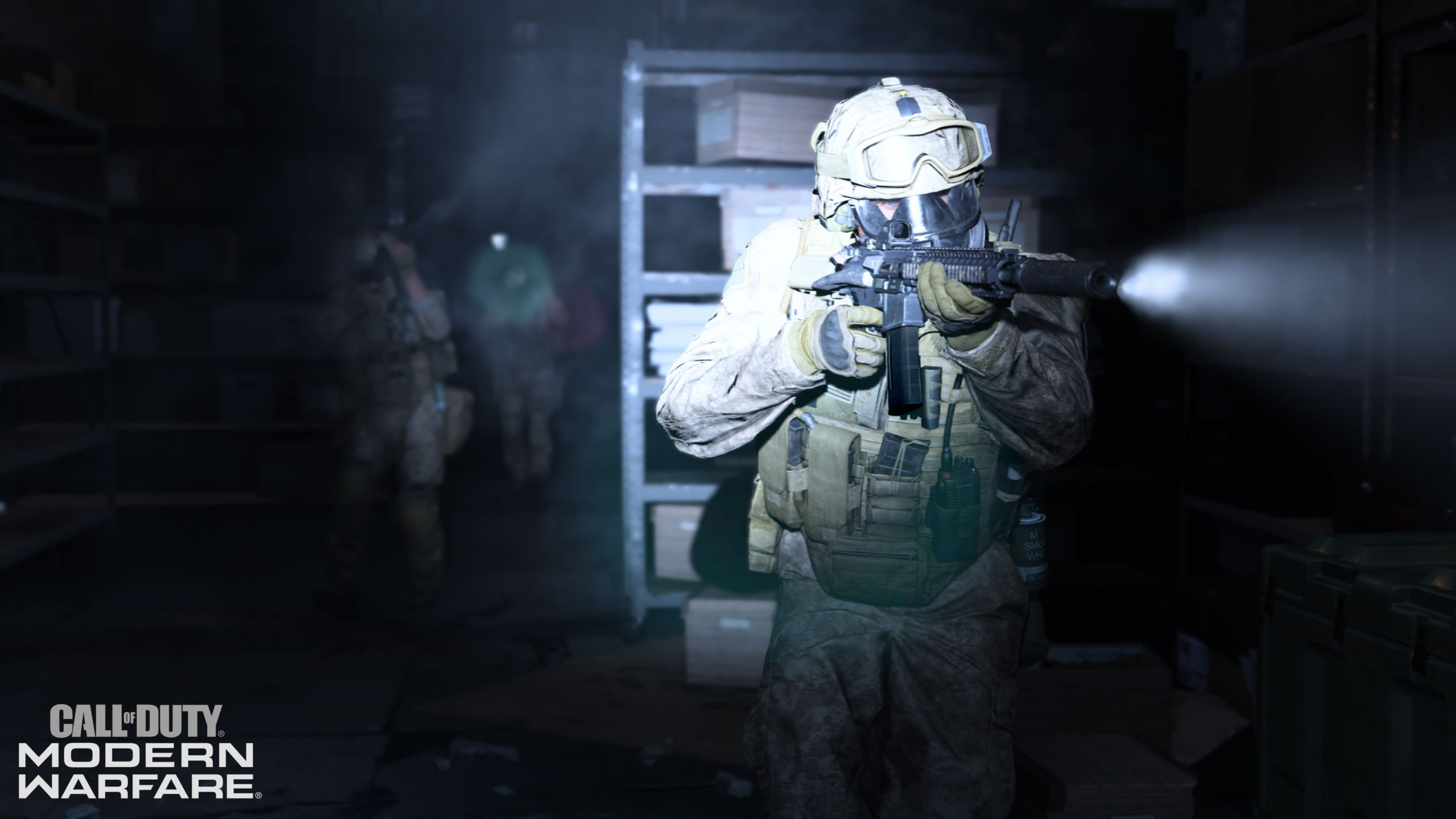
Call of Duty: Modern Warfare Turns Trauma and Fear into Cheap Tricks
Firing a gun is a terrifying experience, and video games have often struggled or straight up neglected in capturing that power for players. Developers may consider the quality of sound design, the intensity of a muzzle flash, or perhaps depended on feedback such as controller rumble. Call of Duty: Modern Warfare takes all of that into account, but to truly give players a sense of control and power that an armed soldier carries, developer Infinity Ward attempted to throw them into scenarios that carried real weight and consequences.
At least, that’s what the pitch was. The reveal of this Modern Warfare reboot was admittedly intriguing—what makes it “modern,” they seemed to ask themselves? To Infinity Ward, it wasn’t the advancement of modern technology. And like many games before it, Modern Warfare dubiously would not delve into on-going real-world conflicts. Instead, Infinity Ward presented “modern warfare” as a concept defined by moral ambiguity and ethical dilemmas.
Yet, Call of Duty: Modern Warfare takes that provocative premise and instead of making players contemplative about the state of our world, emotionally manipulates them into feeling short-term shock, all while trying to justify the havoc they’ve wrought. Infinity Ward prides itself in producing extreme reactions, with a selling point being the game has made playtesters cry. But instead of exploring the nuances of “modern warfare,” all this story does is delve into exploitation to trick players into believing that it is complex and emotional.
All the Modern Warfare campaign has to show is a cheap funhouse with smoke and mirrors—it is the “trolley problem” extended into five hours, a gross, manipulative linear tour of forced trauma.
Infinity Ward had the correct instinct to restart their Modern Warfare series; looking back, the trilogy became overstuffed, contrived, and absurd. They were no more than Michael Bay-like cinematic experiences, with excessive explosions, slow-motion, and increasingly improbable story points. The new 2019 Modern Warfare game at least made a claim that this experience is meant to be disturbingly realistic and uncomfortably intimate.
But right away, players get a sense of the old tricks Infinity Ward is pulling out; the first level is a traditional “follow a guy and open some doors” mission, nothing extraordinary. Mission number two, “Piccadilly,” is the game’s first true attempt to shock and awe. Depicting a terrorist attack in the crowded Piccadilly Circus area of London, players are thrown into a chaotic scene, with civilians scattered and suicide bombers running amok.
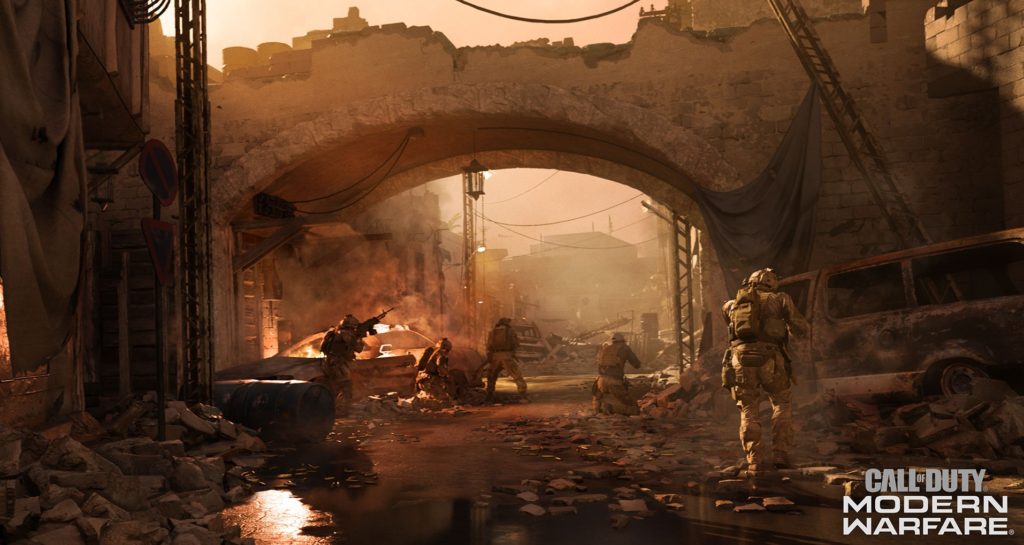
The game attempts to set panic into the player, presumably trying to emulate the split second and life-risking decisions that any operative on the field could face. It is a disturbing scene, but deliberately so. The sequence left a gross taste by the end, not because of the content, but more so because the game rewards the player with a trophy/achievement if they complete the level without accidentally harming any civilians.
This certainly wasn’t the last time Modern Warfare would gamify collateral damage in poor taste.
The fifth campaign mission, titled “Clean House,” is very much meant to be the most exemplary mission of the game. It’s the part of the game that Infinity Ward wouldn’t stop talking about, one that almost seems to be designed as the showstopper to be cited in every review and “best of” end of the year list. Instead, this sequence ended up as a showcase for how this game as a whole tricks players with harrowing traumatic scenarios.
It all goes back to the beat with the mother and her baby, the exemplary beat of the exemplary mission. Players are left in the dark, quite literally, during a tense house raid conducted by British operatives. With night vision and laser sights, navigating through tight spaces in this house is meant to invoke fear and uncertainty. Even something as simple as opening a door exerts power—do you exercise brute force by bursting through, or play it slow and safe? Whichever way you choose in one instance won’t matter, as a woman on the other side of the door spots you and runs towards a crib.
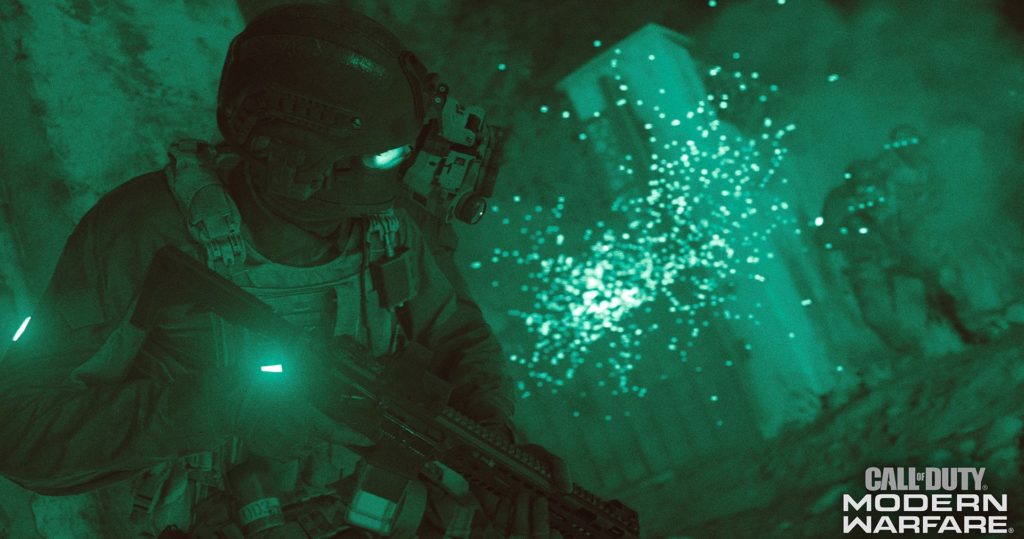
Is she running towards her baby, or frantically reaching for a hidden firearm? No time to pause and think about the moral implications—just like the real thing, it’s do-or-die. Of course, it’s the former, and if the player was to shoot the woman, it would be followed with the cries of a baby. “What the fuck are you doing?” a fellow soldier yells at you. “Sort yourself out, or I will,” Captain Price chides you.
And that’s it—a couple of verbal slaps on the wrist. By not going to a mission fail state, Infinity Ward wanted to signal something to the player and invoke some sense of consequence and trauma into them. But your character doesn’t say anything in response. Despite the player characters being talkative and active in cutscenes, they have no real agency during gameplay. The traumatic moment dissipates, and you move onto the next setpiece in the adjacent room.
The high-quality visuals and immersive sound design create a tense mood where merely opening a door is frightening and firing a single bullet is a startling sensation—but all of this only serves Call of Duty: Modern Warfare in fabricating highly-telegraphed traumatic moments. What Infinity Ward does with these moments is invoke short-term trauma onto players, but without considering any long-term consequences into the story.
No one thought that Call of Duty: Modern Warfare would be an educational experience, and it didn’t seem that Infinity Ward made any claim that it would be. But it is clearly designed to send a message, to present a specific feeling. As I delved further into the single-player story campaign, my frustration grew deeper as I experienced these same tricks repeatedly.
Take “The Embassy,” in which members of a terrorist cell assault an American embassy to free their captured leader. At one pivotal point, the player will be across from “The Butcher” and his soldiers, separated by bulletproof glass. The Butcher threatens a father and his son, whose mother is on the other side. The scene gives a prompt that a door between these two different sides can be opened, and the combination of moral instinct, curiosity, and a very explicit gameplay option likely leads the player to open the door. The Butcher shoots you instantly once the divide is opened, leading to a fail state. The player is then forced to watch the execution of this father and child, and the game wants you to know that no matter how many times you try, you cannot save them.
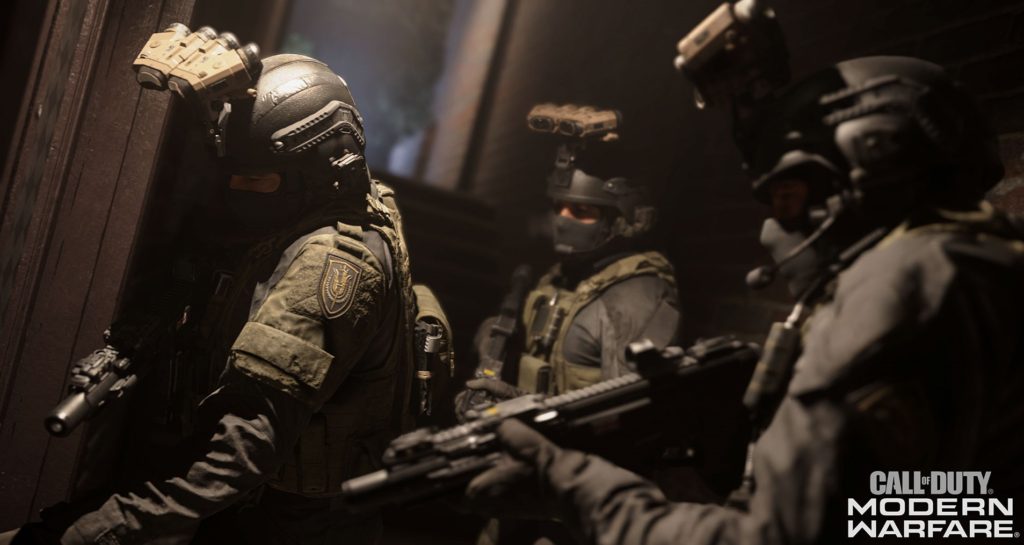
Later on in “The Wolf’s Den,” players will storm a number of houses, and in one case will encounter yet another mother and her child. This time, she does indeed reach out for a gun, and players will have no choice but to shoot her. The young boy cries over her lifeless body, his wails meant to ring in your head. And then, the game moves on without a word of what just happened—no effect on your character’s psyche, and no follow-up or catharsis on what ultimately happened to that boy. Perhaps the point of this beat was to show that one must be cold and move forward in this scenario, but for a game that claims to capture the wider effects of “modern warfare,” this does not pass.
A bullet has power, and your bullet has created lasting ripple effects. But within the story, you never feel those ripple effects—instead, the game just makes you feel bad for a couple of seconds.
There isn’t anything bold about this approach in presenting these dire and emotionally stressful situations to players—it is cruel and it is irresponsible.
What Call of Duty: Modern Warfare does is exploit the real-life horrors that countless people overseas, children especially, are suffering through just to make more privileged and comfortable gamers say “huh, really makes you think.” And even that descriptor may give the game too much credit, as its story refuses to engage with the reasons that truly led to these terrors and the actors that are responsible for this cruelty.
During the era that Infinity Ward considers to be “modern,” the western world has bombarded the Middle East, yet this game has the temerity to point fingers at other world powers for all of this suffering. “We get dirty, and the world stays clean,” Captain Price tells you in a late-game cutscene, therefore washing the West of any sort of responsibility, in Infinity Ward’s eyes. According to the game, killing that mother trying to defend her child is apparently justified, as is the Western soldiers’ presence in their home, and their country to begin with.
It is all a means to an end, because the game reminds you that you’re the good guys—and by the end, the tense, Zero Dark Thirty-like scenes take a backseat to the Michael Bay nonsense that the final campaign mission presents, with your player characters defeating the baddies in dramatic fashion, and a goofy-faced smiling Price preparing for his entry in the next global conflict.
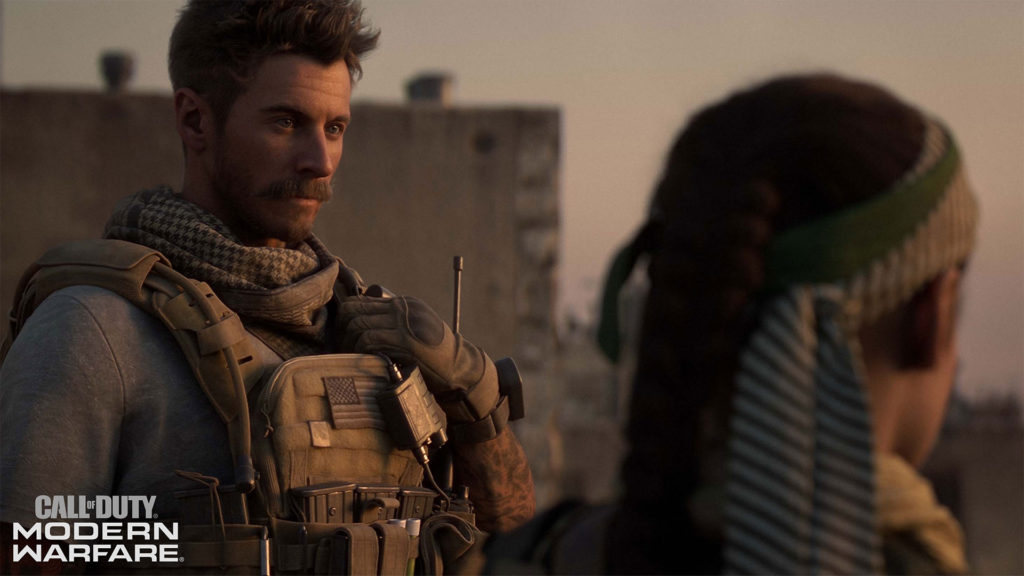
To expect a Western blockbuster video game to be critical of our own military actions is probably naive, as is the expectation that any mainstream best-selling product will delve into PTSD or other mental effects and hardships that veterans may face. Games will continue to use foreigners, people of color, and other cultures as set dressing, but the way in which Call of Duty: Modern Warfare uses them to provoke extreme responses and trauma to no useful end is profoundly offensive.
Call of Duty: Modern Warfare might be successful in depicting both the hard power and soft power of using a gun, but it never questions why that power needed to be exerted in the first place, nor does it depict the consequences of using that power. I question the need for video games to touch upon these themes to this degree when developers’ and writers’ idea of delving in deep is gamifying trauma, and when the values of the corporations behind these products are compromised.
Those who play this game may find themselves shaken and startled, but the feeling is temporary. Eventually, the players move on, something that real-life traumatized veterans and the numerous victims of violence and atrocities do not have the luxury to do. With that, any notion that Call of Duty would tackle the complexities of modern warfare vanishes, trivializing them to just another video game.





